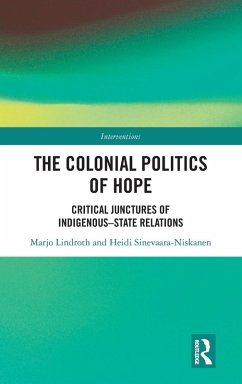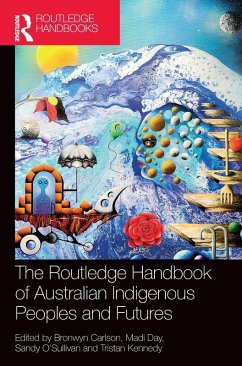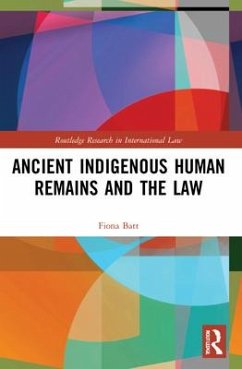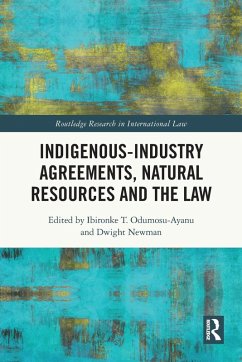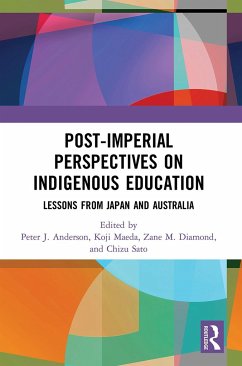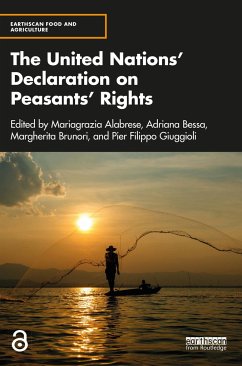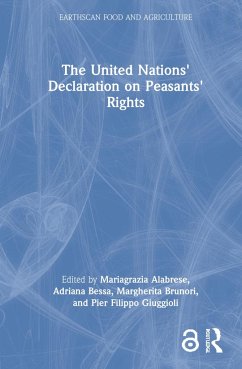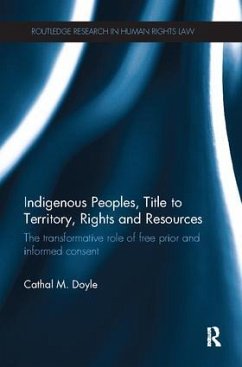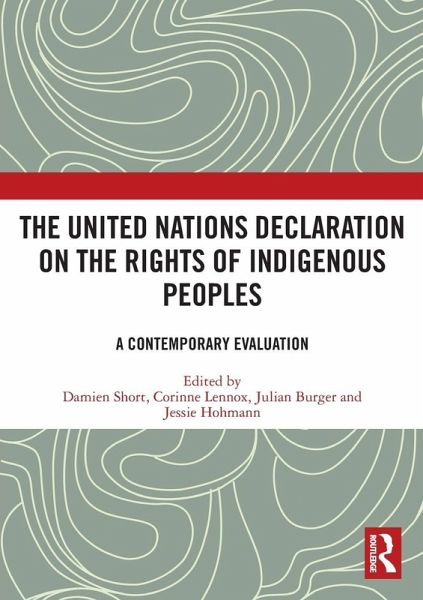
The United Nations Declaration on the Rights of Indigenous Peoples
A Contemporary Evaluation
Herausgegeben: Short, Damien; Lennox, Corinne; Burger, Julian; Hohmann, Jessie

PAYBACK Punkte
23 °P sammeln!
The development and adoption of the United Nations Declaration on the Rights of Indigenous Peoples (UNDRIP) was a huge success for the global indigenous movement. This book offers an insightful and nuanced contemporary evaluation of the progress and challenges that indigenous peoples have faced in securing the implementation of this new instrument, as well as its normative impact, at both the national and international levels.The chapters in this collection offer a multi-disciplinary analysis of the UNDRIP as it enters the second decade since its adoption by the UN General Assembly in 2007. Fo...
The development and adoption of the United Nations Declaration on the Rights of Indigenous Peoples (UNDRIP) was a huge success for the global indigenous movement. This book offers an insightful and nuanced contemporary evaluation of the progress and challenges that indigenous peoples have faced in securing the implementation of this new instrument, as well as its normative impact, at both the national and international levels.
The chapters in this collection offer a multi-disciplinary analysis of the UNDRIP as it enters the second decade since its adoption by the UN General Assembly in 2007. Following centuries of resistance by Indigenous peoples to state, and state sponsored, dispossession, violence, cultural appropriation, murder, neglect and derision, the UNDRIP is an achievement with deep implications in international law, policy and politics. In many ways, it also represents just the beginning - the opening of new ways forward that include advocacy, activism, and the careful and hard-fought crafting of new relationships between Indigenous peoples and states and their dominant populations and interests.
This book was originally published as a special issue of The International Journal of Human Rights.
The chapters in this collection offer a multi-disciplinary analysis of the UNDRIP as it enters the second decade since its adoption by the UN General Assembly in 2007. Following centuries of resistance by Indigenous peoples to state, and state sponsored, dispossession, violence, cultural appropriation, murder, neglect and derision, the UNDRIP is an achievement with deep implications in international law, policy and politics. In many ways, it also represents just the beginning - the opening of new ways forward that include advocacy, activism, and the careful and hard-fought crafting of new relationships between Indigenous peoples and states and their dominant populations and interests.
This book was originally published as a special issue of The International Journal of Human Rights.





